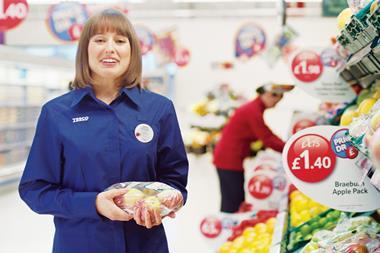Health took centre stage at the Labour Party Conference fringe events this week, with all sides at loggerheads as to a solution.
Speaking at a food fringe event, public health minister Caroline Flint again warned manufacturers and advertisers that the government would not be afraid to change the law regarding advertising junk food to children.
"Parents got supermarkets to move sweets away from checkout aisles. Supermarkets know that if they don't listen to the parents on advertising they won't buy their products."
Her comments came ahead of the expected results next month of ad watchdog Ofcom's investigation into advertising food and drink to children. She added: "We would prefer a system that is voluntary and self regulating and will look at this closely. However, if we don't think self-regulation works we will be looking to legislate.
"Advertising is there to promote and get people to buy foods. If it wasn't people wouldn't be advertising in the first place. I'm not saying food promotion is the only part of tackling obesity but it is fair to say it has an influence and a role."
But outgoing Kellogg UK MD Tony Palmer said there was too much emotion in the issue of advertising to children and the core issue, obesity, was being overlooked. "We need to depoliticise the agenda and focus on the case."
However, Philip Cullum, deputy chief executive of the National Consumer Council, argued that the industry was simply resisting change. "We don't feel there is any need to depoliticise the agenda. People are coming up with pragmatic solutions and you just don't agree with them."
Andrew Brown, director general of the Advertising Association, said that advertising was not as effective as the government was making out. He claimed that figures proved that less than 2% of people were directly influenced in terms of purchases by food advertising.
"To achieve a reduction of one child watching an ad requires a reduction of 17 adults, leading to £250m in lost revenue."















No comments yet